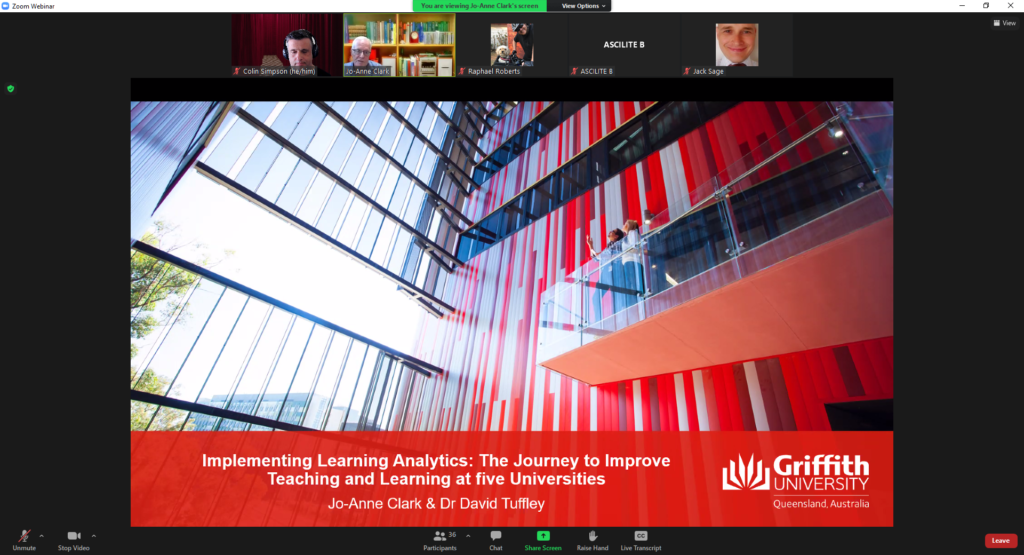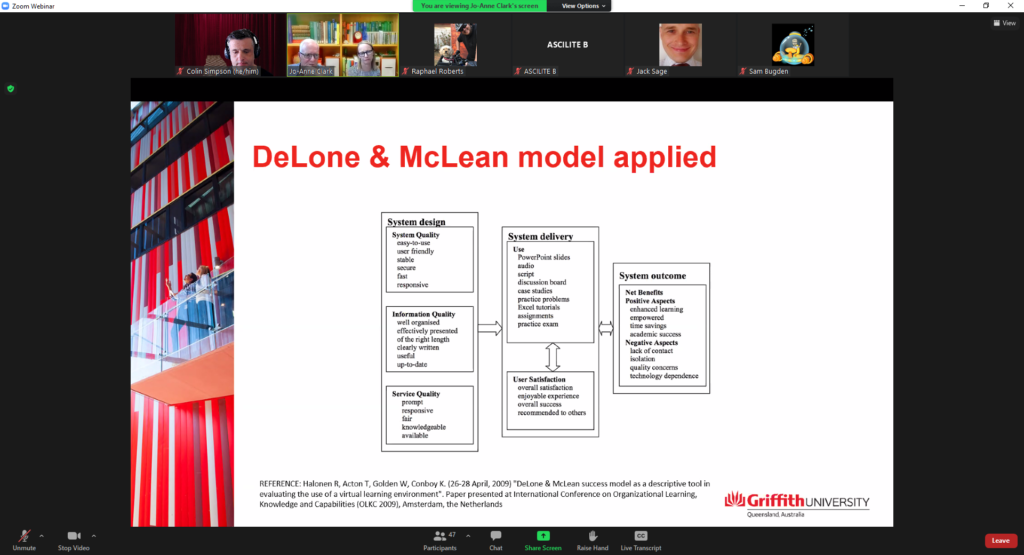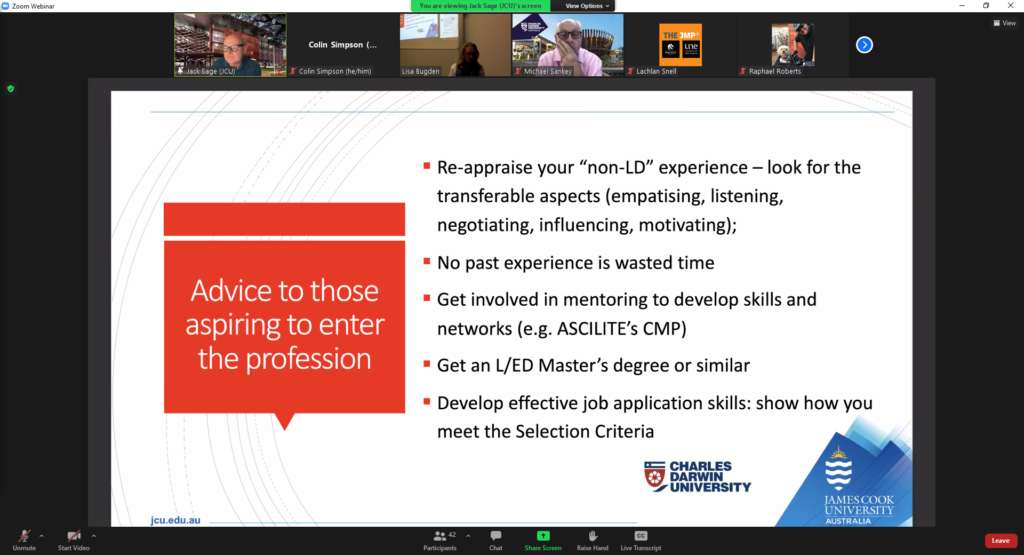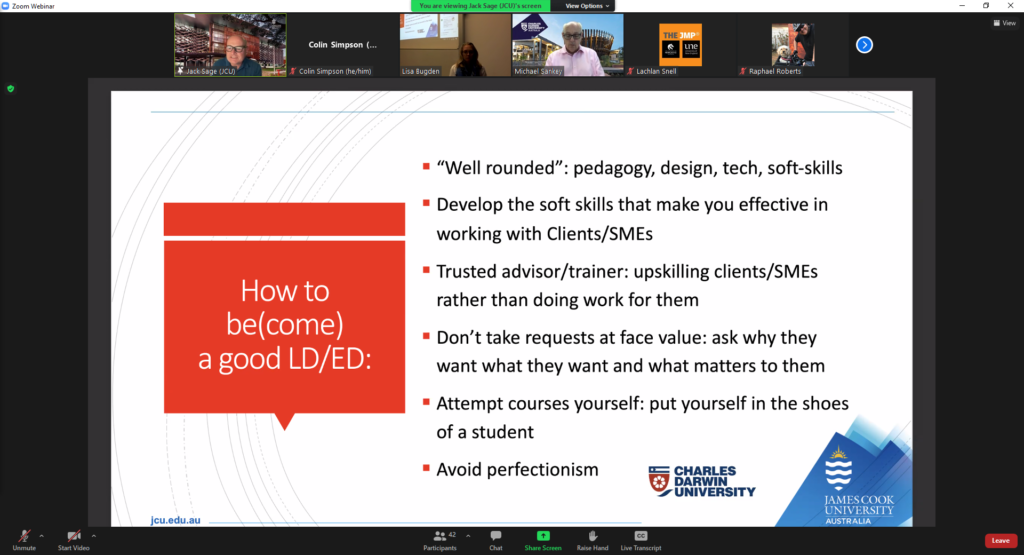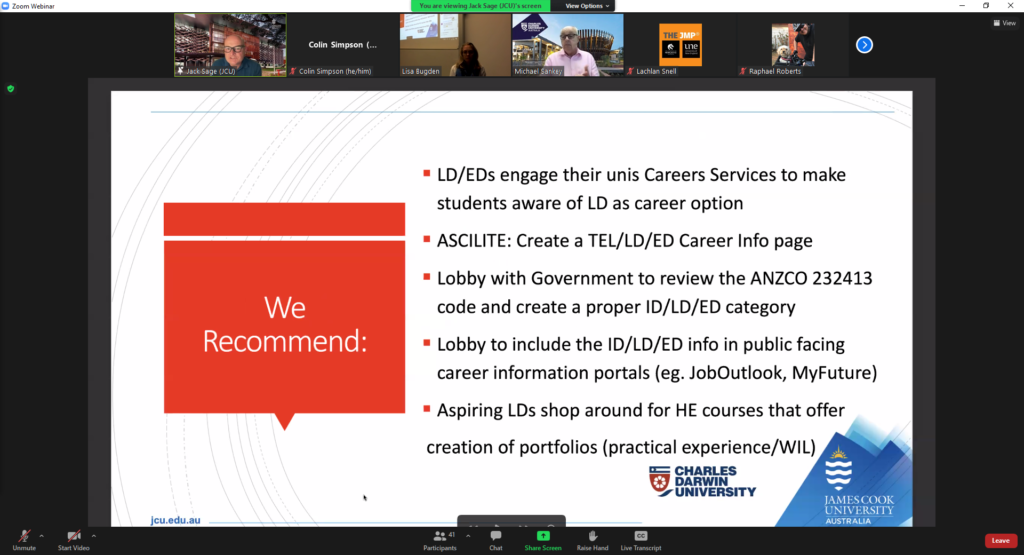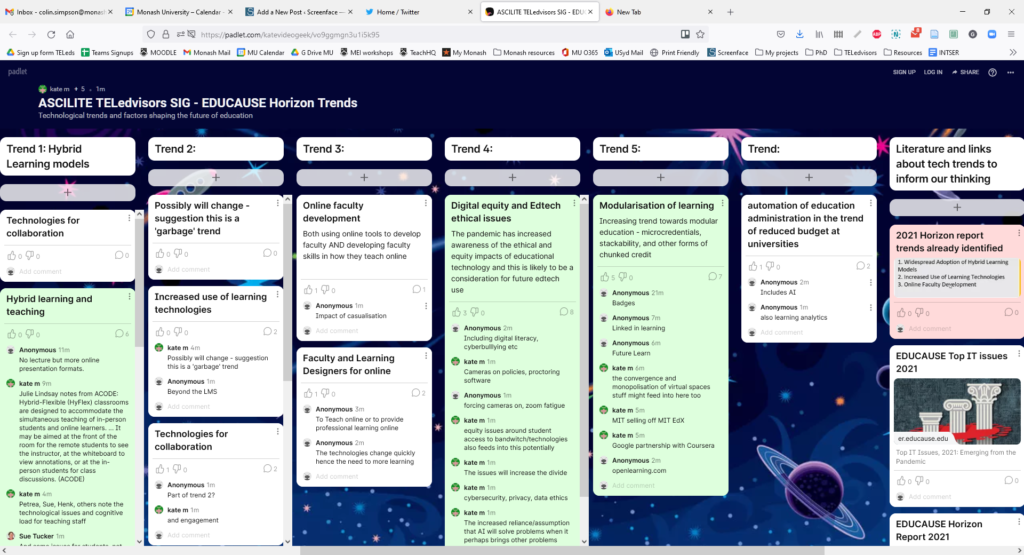Awards


Ah, this is why Beth was asking whether edvisors value CMALT yesterday.
Congratulations also to Keith Heggart for the Emerging Scholar award
Poster from Kate Coleman, Kate Mitchell Kelly Anderson, et al. If unis are saying they are transformational/innovative, does this match the reality

Find the whole poster online at
OES work on Learning Analytics

Martin Bean calling for competency based education and authentic assessment in Higher Ed. Can’t argue with that
Lovely set of Pecha Kucha (pronounced Peh Cha Ku Cha) slides from Carmen Vallis in meme format. (There are some older memes there but they check out)
Another handy tweet about some of the conference posters
Back to what? What STEM and Health teaching academics learnt from COVID – Christopher Bridge, Birgit Loch, Dell Horey, Brianna Julien, Belinda Thompson and Julia Agolli


Wide range of practices under consideration post – COVID

Deakin Launch Network: an employability network that improves engagement, graduate outcomes and wellbeing by connecting and leveraging the expertise of diverse students and alumni – Trina Jorre de St Jorre
Nice presentation about students that meaningfully included student voices

Well that was a diverse Day 2
We also had a big discussion in the TELedvisors community around our aims and some future possibilities – more on that in time










